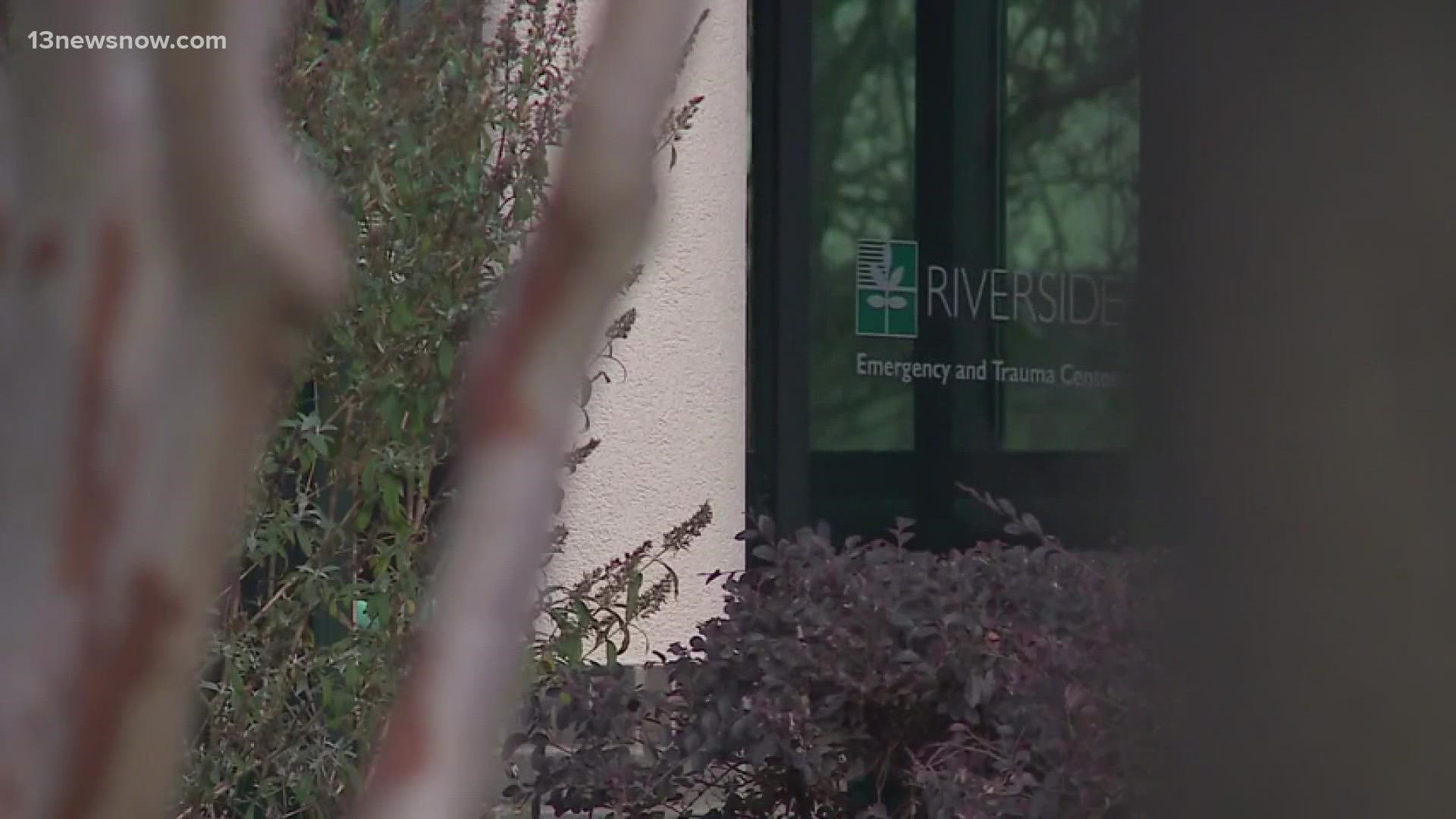NEWPORT NEWS, Va. — More than 3,300 people are fighting COVID-19 in hospitals across Virginia, according to Friday's update from the commonwealth. That's the highest count since the pandemic began.
The last record was at a point in January 2021 with approximately 3,200 hospitalized patients statewide.
Today's surge driven by the Omicron variant is putting a strain on health care systems and their workers.
"Very significant, the worst it's ever been over the course of the last two years," said Riverside President and Chief Operating Officer Dr. Mike Dacey.
On Friday, Dacey told 13News Now that about 400 of the health system’s 10,000 workers couldn't come in because of COVID-19. Mathematically, that may seem small. However, Dacey said it’s not.
"That's a big deal, particularly in critical areas, emergency medicine for example, intensive care medicine. Just a few people being short there, that makes a big difference," he said.
Riverside is able to maintain close to its normal ratio of workers to patients, but it comes at a cost — to employees.
"That’s only because people are working overtime and they’re working much harder and that’s only sustainable for so long. So, we are beginning to ratchet down the number of non-emergency cases, surgical cases, that we’re doing," said Dacey.
RELATED: Sentara Healthcare postpones non-emergent surgeries due to surge in COVID-19 hospitalizations
The rampant spread of Omicron is leading to Riverside's highest number of COVID-19 hospitalizations, 132 patients as of Friday.
"There's no doubt, the numbers have certainly gone up and they've gone up in a straight-line fashion," said Dacey.
About 25% of patients with COVID-19 right now went to Riverside hospitals for another medical issue, then were diagnosed with COVID while they were there, according to Dacey.
RELATED: 'Everyone can help save lives' | Health leaders urge vaccines, testing as NC shatters one-day record
About 60% of those hospitalized at Riverside Health are unvaccinated or only partially vaccinated.
Dacey believes it's crucial to mask up, get fully vaccinated and when eligible, get boosted. "This variant is more transmissible and it does to some extent evade the vaccines, but they're still protective against serious life-threatening illness."
Dacey also mentioned that of those who have gotten an initial series of the COVID-19 vaccine in this region, roughly a third have gotten a booster.
"Getting boosted is a very important part of staying protected over the course of the next couple of months," he added.

